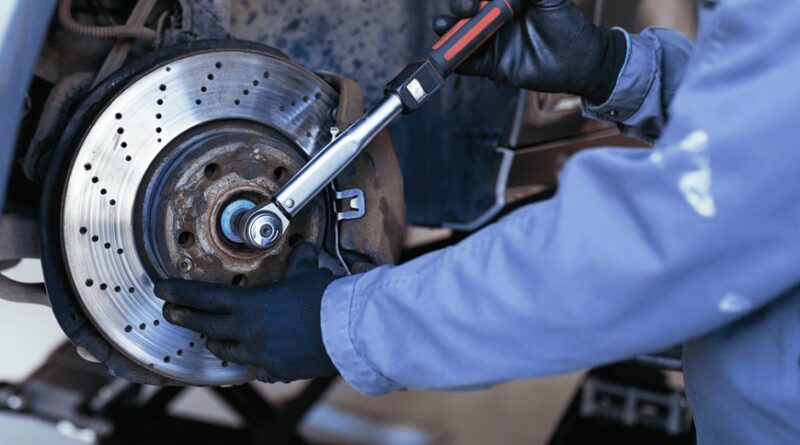How Brake Specialists Diagnose Issues
Your car’s braking system is one of its most critical safety components. If your brakes aren’t functioning properly, your safety—and that of others on the road—is at risk. But how do professionals pinpoint the exact problem?
That’s where brake specialists in Bournemouth come in. These experts use a combination of experience, diagnostic tools, and in-depth inspections to identify issues before they turn into major (and expensive) problems. Let’s take a closer look at how brake specialists diagnose and fix braking system faults.
1. Initial Brake System Inspection
A brake specialist starts with a visual inspection to look for obvious signs of wear or damage. This includes checking the brake pads, rotors, calipers, and brake fluid levels. Any noticeable wear or leakage can indicate potential issues that need further investigation.
2. Asking the Driver About Symptoms
Before diving into diagnostics, specialists ask you about any unusual brake behavior. Common questions include:
- Are you hearing squeaking, grinding, or clicking noises?
- Is the brake pedal feeling too soft, too firm, or unresponsive?
- Does your car pull to one side when braking?
- Have you noticed a burning smell or longer stopping distances?
Your input helps narrow down the possible causes and speeds up the diagnostic process.
3. Checking Brake Fluid Levels and Condition
Brake fluid plays a crucial role in your braking system, transmitting pressure from the pedal to the calipers. Specialists will:
- Check fluid levels to ensure they are within the recommended range.
- Inspect the color—dark or contaminated brake fluid means it’s time for a change.
- Look for leaks that could indicate worn-out brake lines or a failing master cylinder.
If fluid levels are low or contaminated, it can lead to poor braking performance and potential system failure.
4. Brake Pad and Rotor Inspection
Worn-out brake pads and damaged rotors can significantly reduce braking efficiency. Specialists examine:
- Brake pad thickness—if they’re too thin, they need replacing.
- Uneven wear patterns—this may indicate issues with calipers or suspension.
- Rotor condition—warped or deeply grooved rotors can cause vibrations and reduce stopping power.
If pads or rotors are worn, the specialist will recommend replacements to restore proper function.
5. Testing the Brake Pedal Response
A brake pedal that feels spongy, too firm, or sinks to the floor can indicate:
- Air in the brake lines
- A failing master cylinder
- Worn-out brake boosters
A quick pedal response test helps determine if further diagnostics are needed.
6. Checking for Brake Fluid Leaks
Leaking brake fluid can cause a sudden loss of braking power. Specialists check for leaks in:
- Brake lines
- Calipers
- The master cylinder
- Wheel cylinders (in drum brakes)
Leaks are dangerous and must be repaired immediately to avoid brake failure.
7. Measuring Rotor Thickness and Warping
Rotors need to be smooth and even for effective braking. Specialists use a micrometer to measure rotor thickness and check for warping. If the rotors are too thin or uneven, they need resurfacing or replacing.
8. ABS System Diagnostics
Modern vehicles come equipped with an Anti-lock Braking System (ABS) that prevents wheel lock-up during hard braking. If the ABS light is on, specialists use diagnostic scan tools to retrieve error codes. Common ABS issues include:
- Faulty wheel speed sensors
- Malfunctioning ABS control module
- Damaged wiring or fuses
Fixing ABS issues ensures stability and control in emergency braking situations.
9. Test Drive for Real-World Symptoms
A hands-on approach is often the best way to diagnose brake issues. During a test drive, specialists look for:
- Pulling to one side
- Unusual noises
- Pedal vibration
- Delayed stopping response
Real-world testing helps confirm suspicions and ensures all issues are addressed.
10. Brake Caliper Inspection
Sticking or seized calipers can cause uneven brake pad wear, pulling to one side, and overheating. Specialists check if the calipers retract properly and lubricate or replace them if needed.
11. Parking Brake Assessment
A faulty handbrake can lead to rolling hazards. Specialists inspect and adjust the handbrake cable or rear drum brakes to ensure a secure hold when parked.
12. Computerized Brake Diagnostics
Some vehicles have advanced brake monitoring systems. A diagnostic scanner is used to check for electronic faults, helping to pinpoint issues that may not be visible during manual inspections.
Why Professional Brake Diagnosis Matters
Ignoring brake issues can lead to expensive repairs and safety risks. A professional brake specialist ensures:
- Accurate diagnosis to fix the root cause.
- Safe and effective braking for peace of mind.
- Cost savings by addressing problems early.


